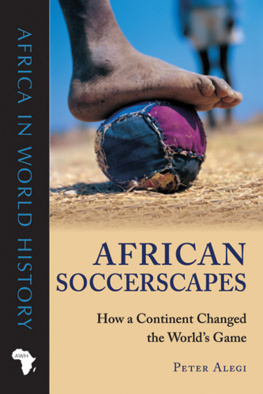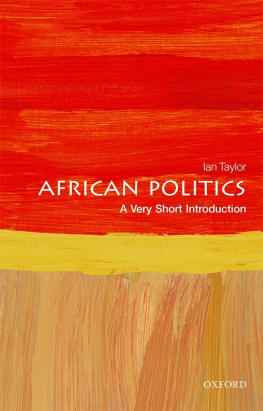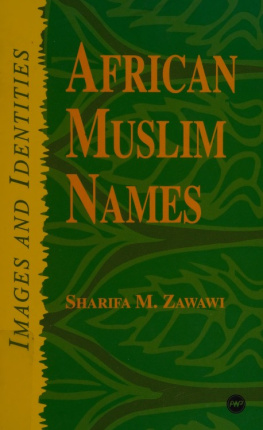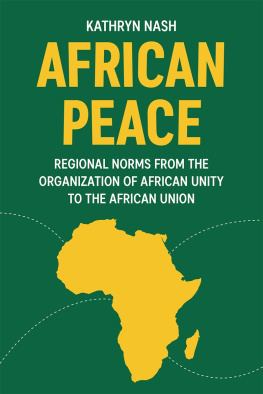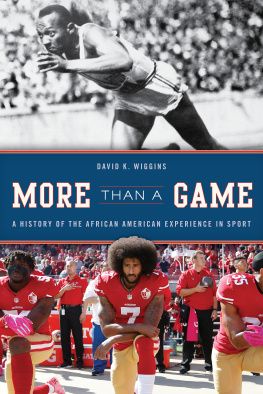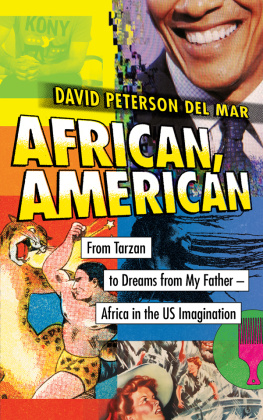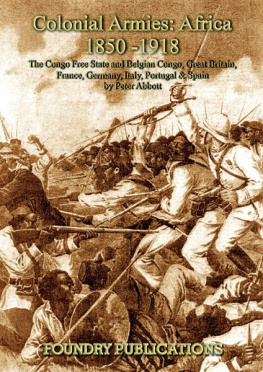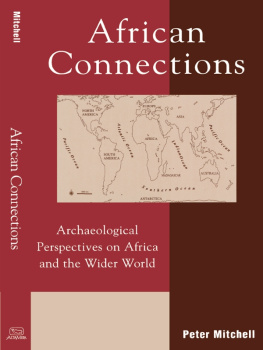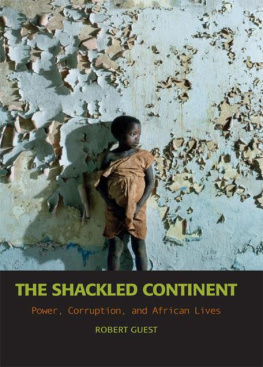African Soccerscapes
Af rica in World History
SERIES EDITORS: DAVID ROBINSON AND JOSEPH C. MILLER
James C. McCann
Stirring the Pot: A History of African Cuisine
Peter Alegi
African Soccerscapes: How a Continent Changed the Worlds Game
Forthcoming:
John M. Mugane
The Story of Swahili
Charles Ambler
Mass Media and Popular Culture in Modern Africa
A frican Soccerscapes
How a Continent Changed the Worlds Game
Peter Alegi
OHIO UNIVERSITY PRESS
in association with the
OHIO UNIVERSITY CENTER FOR INTERNATIONAL STUDIES
Athens
Ohio University Press, Athens, Ohio 45701
www.ohioswallow.com
2010 by Ohio University Center for International Studies
All rights reserved
To obtain permission to quote, reprint, or otherwise reproduce or distribute material from Ohio University Press publications, please contact our rights and permissions department at (740) 5931154 or (740) 5934536 (fax).
Printed in the United States of America
Ohio University Press books are printed on acid-free paper

18 17 16 15 14 13 12 11 10 5 4 3 2 1
Library of Congress Cataloging-in-Publication Data
Alegi, Peter.
African soccerscapes : how a continent changed the worlds game / Peter Alegi.
p. cm. (Africa in world history) (The white mans burden : football and empire, 1860s1919 The Africanization of football, 1920s1940s Making nations in late colonial Africa, 1940s1964 Nationhood, Pan-Africanism, and football after independence Football migration to Europe since the 1930s The privatization of football, 1980s to recent times South Africa 2010 : the World Cup comes to Africa)
Includes bibliographical references and index.
ISBN 978-0-89680-278-0 (pb : alk. paper) ISBN 978-0-89680-472-2 (electronic)
1. SoccerAfricaHistory. I. Title.
GV944.A4A45 2010
796.334096dc22
2009049198
To Africas footballers, past, present, and future
C ONTENTS
The White Mans Burden
Football and Empire, 1860s1919 |
IL LUSTRATIONS
Figures
Maps
Tables
P ROLOGUE
On May 15, 2004, Nelson Mandela wept tears of joy as the Fdration Internationale de Football Association (FIFA) awarded South Africa the right to host the 2010 World Cup finalsthe first on African soil. I feel like a boy of fifteen, he told the audience in Zurich. In South Africa, people of all races erupted in simultaneous, raucous celebration of the much-anticipated announcement. To some extent this outburst of euphoria surpassed 1994, the year of the first democratic elections in South Africa, writes Ahmed Kathrada, a former political prisoner incarcerated with Mandela for twenty-six years. The scenes of jubilation, the spontaneous outpouring of celebration following FIFAs decision, the solidarity of pride and unity evoked by a sporting event should serve as a shining example to black and white alike. How did an African country come to host the World Cup?
This book tries to answer this question by telling the little-known story of football in Africa and how the continent changed the worlds game. Played almost everywhere, in the center of huge modern cities and in isolated rural villages, football (or soccer) is the most popular sport in Africa and possibly the most popular cultural activity on our planet. This simple, fun, and accessible game captures the attention of ordinary Africans, men and women, children and adults, workers and students, political leaders and apolitical masses, the business elite and the unemployed. Not many other African social practices are so tightly bound up with local, national, continental, and global dynamics.
African Soccerscapes is one of the first academic studies to connect Africans intense passion for the game to their experiences with European domination; the growth of cities and towns; the struggle for independence and nationhood; migration; and globalization. Drawing primarily on published sources in English and French, the book looks at the ways in which Africans appropriated football from European colonizers and transformed it into a professional industry shaped by transnational capital and mass media. Firmly situating teams, players, and associations in the international framework in which Africans have to compete, I focus on how the game influenced, and was influenced by, racial, ethnic, and national identities, cultural values, economic interests, and power struggles. Selected case studies from around the continent highlight differences and similarities and bring out connections between sport and society. My central argument is that African players, coaches, officials, and fans have written crucial chapters in the history of football and therefore any interpretation of the games global past must address the interaction of African practitioners and fans with this exciting and nearly universal expression of human culture.
The book is divided into six narrative chapters arranged thematically and chronologically. demonstrate how football contests and organizations fueled Africas broader quest for political and cultural liberation in the mid- and late twentieth century and helped to construct a sense of nationhood among diverse populations.
analyzes the increasingly commercialized and globalized African football of the 1990s and 2000s, as seen in privatized clubs and competitions, as well as in the launch of youth football academies and the growth of the womens game. The books epilogue is devoted to the run-up to the 2010 World Cup in South Africa. A discussion of the significance of this sporting megaevent illustrates how race and racism, nationhood, and capitalism continue to play an important role in African football today.
A CKNOWLEDGMENTS
I must first thank David Robinson and Joseph C. Miller, editors of the Africa in World History series at Ohio University Press, for giving me the opportunity to write African Soccerscapes. The final manuscript was vastly improved by detailed and constructive comments of two anonymous reviewers. Gill Berchowitz, Nancy Basmajian, and the production staff at Ohio University Press deserve special recognition for their professionalism and enthusiasm in bringing this book to fruition.
Generous funding from the Department of History, the Center for Integrative Studies in the Arts and Humanities, and the Internal Research Grant Program at Michigan State University enabled me to complete this project ahead of the 2010 World Cup in South Africa. I am massively indebted to Peter Limb for discovering an incredible number of sources on African football and building a superlative library collection on the topic. History chairperson Mark Kornbluh gave me release time and, with David Bailey, taught me the art of writing effective grant proposals. Leslie Hadfield and Jill Kelly were indefatigable research assistants, and many colleagues in the Department of History and the African Studies Center gave their friendship and backing, including Nwando Achebe, Ibro Chekaraou, Pero Dagbovie, Laura Fair, Walter Hawthorne, Deo Ngonyani, James Pritchett, and David Wiley.
Many individuals expanded my understanding of African sport and society through conversation, e-mail, manuscripts, and comments made at seminars and conferences in North America, Europe, and Africa. I would like to thank Gerard Akindes, Simon Akindes, Charles Ambler, Susann Baller, Wiebe Boer, Chris Bolsmann, Ben Carton, Herbert Chipande, David Coplan, Paul Darby, Ashwin Desai, Laurent Dubois, Bob Edgar, Marc Fletcher, Sarah Forde, Solomon Getahun, Mark Gleeson, Albert Grundlingh, Verne Harris, Sean Jacobs, Anthea Josias, Matthew Kirwin, Chuck Korr, Pelle Kvalsund, Richard Maguire, Christopher Merrett, Wapu Mulwafu, Sifiso Ndlovu, Derek Peterson, Andr Odendaal, Folu Ogundimu, Rodney Reiners, Martha Saavedra, Solomon Waliaula, Ibrahima Thioub, Goolam Vahed, Robert Vinson, David Wallace, and Justin Willis.


